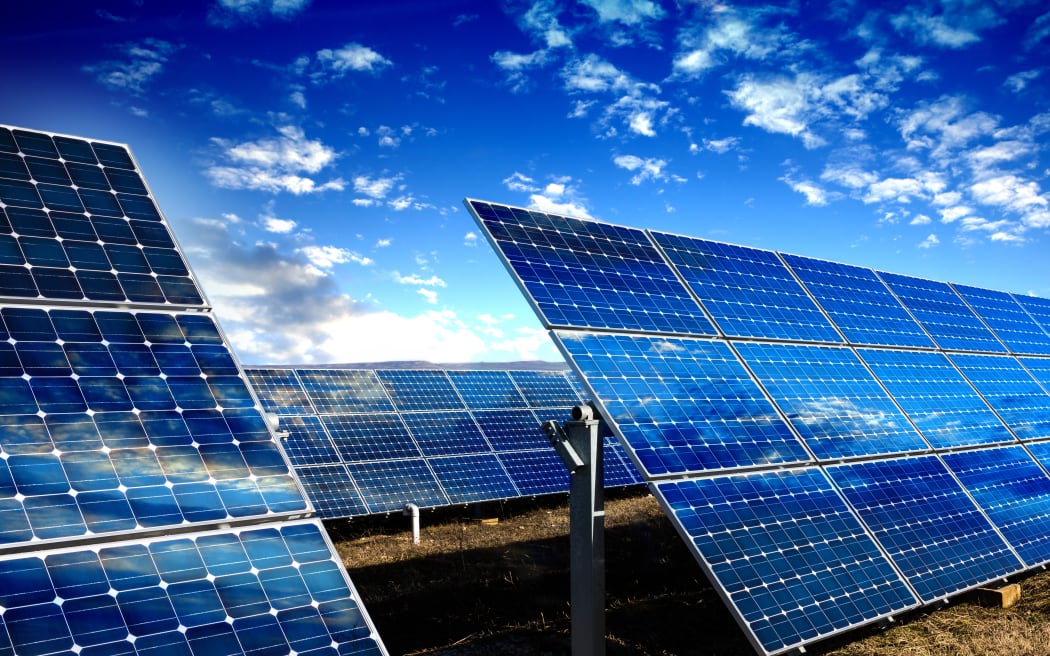World
Pacific Leaders to Champion 100% Renewable Energy at COP30

The Pacific Islands are poised to take a significant step towards renewable energy, aiming to become the first region globally to rely entirely on renewable sources. This ambitious initiative is set to be presented at the 30th United Nations Climate Change Conference (COP30), which begins on November 6, 2023, in Belém, Brazil. Although many member states of the Pacific Islands Forum have yet to meet their renewable energy targets, leaders are determined to advocate for a sustainable future.
Fiji, Nauru, the Marshall Islands, Samoa, Tuvalu, and Vanuatu have committed to achieving 100 percent renewable energy by 2030. Meanwhile, Tonga and the Solomon Islands aim for 70 percent renewable electricity by the same year, with a goal of complete renewable generation by 2050. Despite these pledges, a report from the Pacific Islands Forum published in 2022 highlighted a concerning reliance on imported fossil fuels, which still dominate the region’s energy landscape. The report indicates that the average contribution of renewable energy to total energy production in the Pacific stands at only 17.1 percent.
During COP30, Pacific leaders, including Palau’s President Surangel Whipps Jr., will advocate for the 100 percent Renewable Pacific Initiative. Wesley Morgan, a climate risk researcher at the University of New South Wales, emphasized that while transitioning to renewable energy may carry initial costs, it promises long-term savings by eliminating annual fossil fuel expenses. The Asian Development Bank estimates that Pacific small island states collectively spend over US$1 billion annually on fossil fuels.
Morgan stated, “The world is moving away from fossil fuels and towards renewable energy, but it’s not happening fast enough. The Pacific can lead by example by becoming the first region in the world powered 100 percent by renewable energy.” This push for renewable energy represents a crucial survival strategy for Pacific Island nations facing the dire impacts of climate change.
At COP28, youth activists from the Pacific advocated strongly for renewable energy, contributing to a global commitment to triple renewable energy production. Environmental advocate Jacynta Fa’amau from 350.org acknowledged the ambitious nature of the initiative but affirmed its feasibility. She highlighted the need for swift, just transitions to renewable energy, urging world leaders to listen to frontline and Indigenous communities.
As the Pacific Islands prepare for future climate discussions, attention is also on the potential host for COP31 in 2026. Australia and Türkiye are vying for the opportunity, with Pacific leaders hopeful that Australia can secure the bid. Morgan noted that if COP31 is held in Australia, it would be the largest diplomatic summit ever hosted in the Pacific region, providing a platform to garner international support for the energy transition.
Regardless of the location of future climate meetings, the economic rationale for renewable energy is compelling. Some Pacific nations allocate up to a quarter of their Gross Domestic Product (GDP) to fossil fuel imports. Morgan identified solar power as the likely frontrunner for renewable electricity generation in the region, stating, “Solar is the winner globally for the cheapest form of electricity generation.” He added that solar energy, complemented by storage solutions, offers a promising path forward.
The Pacific Islands’ commitment to renewable energy at COP30 highlights not only their determination to combat climate change but also their role as leaders in the global transition towards sustainable energy.
-

 Sports2 months ago
Sports2 months agoNetball New Zealand Stands Down Dame Noeline Taurua for Series
-

 Entertainment2 months ago
Entertainment2 months agoTributes Pour In for Lachlan Rofe, Reality Star, Dead at 47
-

 Entertainment4 weeks ago
Entertainment4 weeks agoNew ‘Maverick’ Chaser Joins Beat the Chasers Season Finale
-

 Sports5 days ago
Sports5 days agoEli Katoa Rushed to Hospital After Sideline Incident During Match
-

 Sports2 months ago
Sports2 months agoSilver Ferns Legend Laura Langman Criticizes Team’s Attitude
-

 Politics1 month ago
Politics1 month agoNetball NZ Calls for Respect Amid Dame Taurua’s Standoff
-

 Entertainment2 months ago
Entertainment2 months agoKhloe Kardashian Embraces Innovative Stem Cell Therapy in Mexico
-

 World3 months ago
World3 months agoPolice Arrest Multiple Individuals During Funeral for Zain Taikato-Fox
-

 Sports3 months ago
Sports3 months agoGaël Monfils Set to Defend ASB Classic Title in January 2026
-

 Sports2 days ago
Sports2 days agoJamie Melham Triumphs Over Husband Ben in Melbourne Cup Victory
-

 Entertainment1 month ago
Entertainment1 month agoTyson Fury’s Daughter Venezuela Gets Engaged at Birthday Bash
-

 Sports1 month ago
Sports1 month agoHeather McMahan Steps Down as Ryder Cup Host After Controversy





















